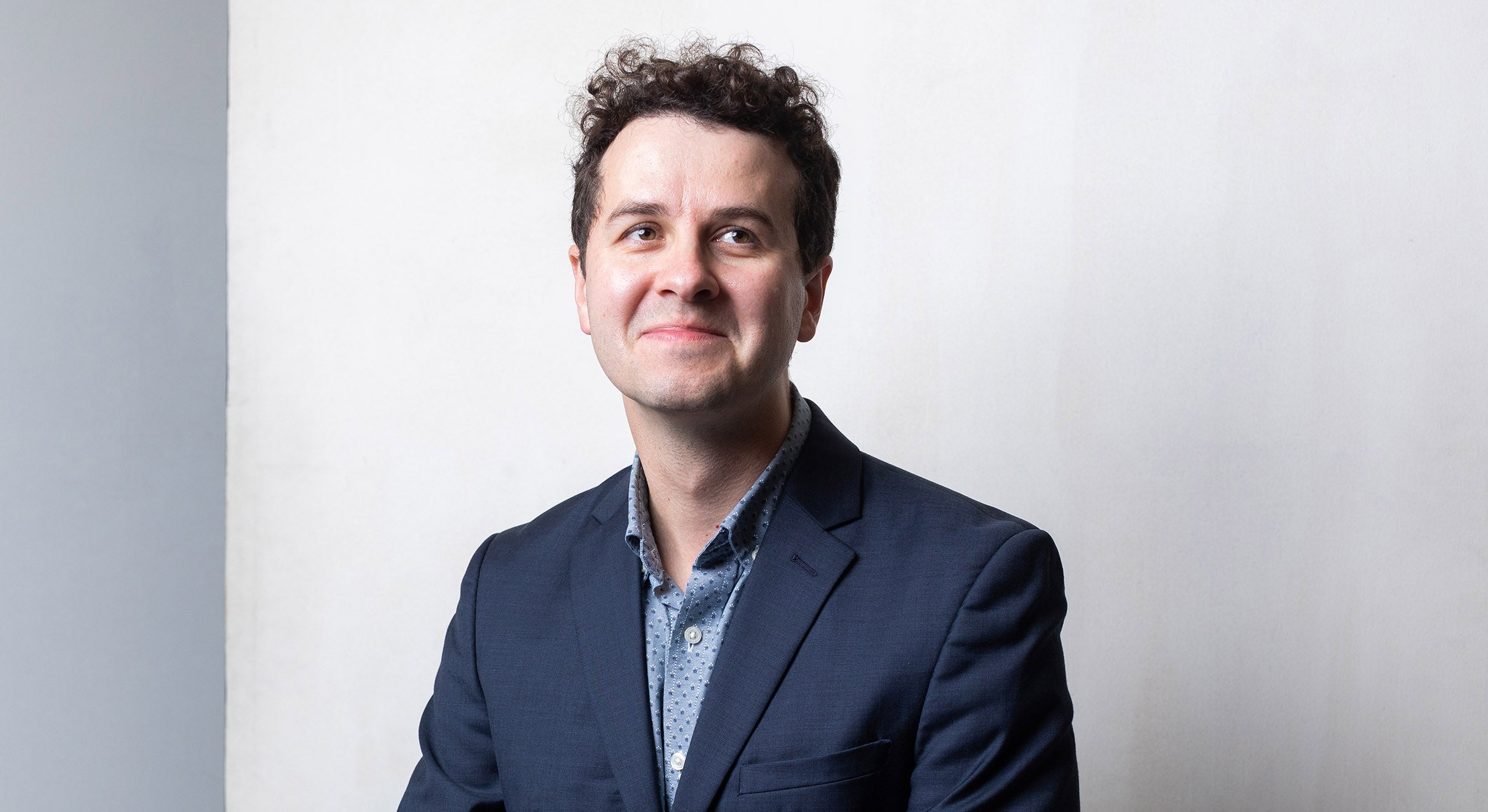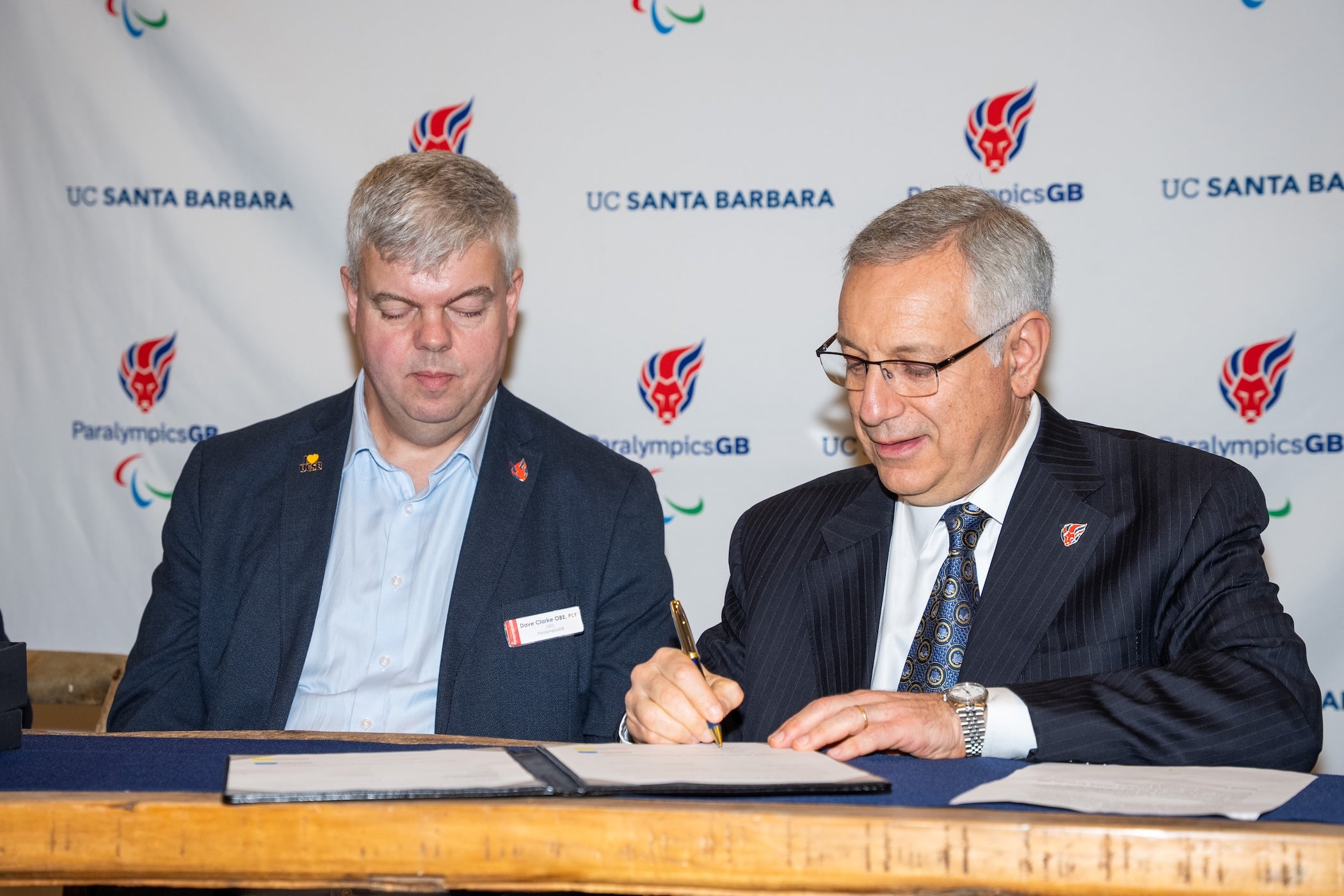UC Santa Barbara Alumna Pushing for Winter Olympics After Tragic Loss



There's intensity in her eyes, her face as taut with determination as her body is with drive. When she explodes off the blocks and flies down the straightaway, a spectator hears only her feet, feels only her wind.
Maureen Ajoku will need it all — strength, speed, focus, and fearlessness — where she may soon be going: the 2014 Winter Olympics. A former track-and-field standout at UC Santa Barbara, the 2012 sociology alum is one year into an unexpected tenure with the USA Bobsled Team, poised to reach the pinnacle of competitive athletics.
With nearly eight months to go before the Russia-hosted Games, Ajoku is now in fifth position on a team that will take at least its top three to Sochi.
"Coming this far, with everything I've been through, to be in the place that I am now — it's an amazing feeling," said Ajoku, who is in Santa Barbara training at Westmont College through June, when she'll return to the Olympic Training Center in Lake Placid, NY. "If I go to the Olympics, it's the ultimate testament to people who are fighting through something. This is for them. I can say, ‘I made it, so can you. You can still make it.' That's what I'm looking forward to the most."
To those who know Ajoku and her relentless work ethic, that she has arrived here, in a sport to which she was first introduced only last year, comes as no surprise. It's how she came to be here — and what she went through along the way — that made her ascendance improbable.
In the spring of 2007, Ajoku was barreling toward high school graduation with her eyes on the future. And what a future it looked to be. After her best season to date in the heptathlon, and notching a record-setting, championship-winning high jump, she scrapped her plans to attend San Francisco State when UCSB came calling.
Ajoku's already tireless devotion to track and field — the sport she entered on a whim four years earlier, after getting cut from the eighth-grade basketball team — was beginning to pay off. Competing for UCSB meant competing in college's big league: NCAA Division I.
She never imagined her parents wouldn't be in the stands to cheer her on.
Three weeks before her commencement from Santa Teresa High School in San Jose, Ajoku's father died suddenly, of kidney failure. Later the same year, with the books closing on her inaugural quarter at UCSB, her mother died of ovarian cancer.
Julius and Nnenna Ajoku were born in Nigeria. Each had come to the U.S. in their early twenties — Julius to California, Nnenna to Alabama — aiming for a better education, and a better life. First introduced at a wedding, they achieved that life together. Julius became an engineer; Nnenna was a registered nurse. They raised three daughters who inherited, and were inspired by, their parents' drive. The loss was devastating.
"It was hard to go to school and compete, and at the same time try to be strong in front of people — I didn't want people to feel sorry for me," Ajoku recalled of that time. "I had to keep a strong exterior. That was really hard and I struggled with that for a while during college. But eventually I started to dedicate myself, and my goals, and my dreams to my parents, to live a life to make them proud. That's what has kept me going in athletics. It's been an escape as well."
Not officially recruited to UCSB, Ajoku was essentially a walk-on to the track team her first year. By her senior season, she was on scholarship. After setting a UCSB record in the long jump that stood until this spring, she was named team MVP. It was a long time coming for the competitor that head track coach Pete Dolan recalled as "always one of everybody's favorites — the kind of person you just want to watch."
"She is a true intrinsically motivated athlete," Dolan said of Ajoku. "She didn't need much. It was just ‘Can I have a place to practice?' And ‘I'll do my best.' And she did. Focus, working hard, believing. That's Maureen. It's a horrible thing that she went through, but it's made her the tough athlete she is today. She's strong as hell."
Her physical power in particular is what led Ajoku, by chance, to bobsled. During her last year at UCSB, a coach saw her pushing — with ease — a prowler sled loaded with more weight than those of his top male sprinters. Such was the metaphorical light-bulb moment for Josh Priester, then UCSB's associate director for track and field, who knew that the strength, speed, and explosiveness crucial to success on the track were equally so for bobsled.
He also knew a member of the national bobsled team.
A series of Priester-initiated introductions soon snared Ajoku an invitation to try out during USA Bobsled's annual combine — a physical test of sprints, shot toss, and broad jump — in Park City, Utah. She did, Priester recalled, "extraordinarily well." So well, in fact, that the national coach called Ajoku the very next day, asking her to a Lake Placid recruitment camp in July 2012. By August she was competing in Calgary. She would eventually travel to Austria, Switzerland, Germany, and Russia as an official member of the team.
"Some people describe it as being thrown off a mountain in a garbage can," Ajoku says of being inside a bobsled, which in a race can hit speeds as high as 85 miles per hour. "Every single trip down is really scary, because you never know what you're going to get. You can hit a curve on one run down, and you can crash. I've crashed three times. You just have to stay calm and trust in your pilot that they're going to take you down safely."
A bobsled's pilot is its driver; Ajoku is what's called a brakeman. Her title is literal: it's her job to hit the brakes the right way, at the right time. Once she and her pilot push off and get inside the sled, she mostly stays low — and stays aware.
"It's really, really intense," she said. "There's no word that can describe how intense the sport is in general, with the people, the competition, practices — it's a whole new world. Pushing the sled is really technical. You have to be in the right position, stay low, there are so many factors that go into pushing a bobsled well."
There is little doubt that Ajoku will not rest until she has mastered all such factors. After all, this is a woman who happily cops to her never-off competitive switch by relaying, with a laugh, this endearing tidbit: "Even on the bike path at UCSB, I was always ‘that person' trying to pass the people riding next to me. I don't know what it is."
Priester knows. After four years at UCSB, he left in 2012 to found and direct the nonprofit Women's Athletic Performance Foundation, which aims to support elite American heptathletes, promote physical activity, and provide positive role models through community outreach. He is currently training Ajoku, gratis, because he believes so strongly in her ability.
"Athleticism is one component, one piece of the puzzle, but the internal drive and the heart someone has to have to be at this level is the real separating point," Priester said. "There are a lot of people with talent. I've seen a lot of athletes with all the talent in the world that are never going to maximize it because they just don't have it inside. And she does."
Strength of body can make a fine athlete, but it's strength of heart that reveals a true champion. Strange how a broken heart can sometimes be the strongest of all.
"When my coach first said I'd be a good bobsledder I thought, ‘Is this a joke? What's a bobsled?'" Ajoku said wryly. "But when I saw the opportunity for the Olympics — a once-in-a-lifetime opportunity — I took a leap of faith. I've worked so hard. Finally, this is my time.
"What keeps me motivated is my parents, wanting to make them proud, wanting to inspire other people," she continued. "That's my main thing. Especially for other people who have gone through hard times, to show them that no matter your obstacle, you can still succeed. Your circumstances don't have to define you. When my parents died I had to grow up really fast, and see what was important. It's a short life. Any opportunity you get — take it."



